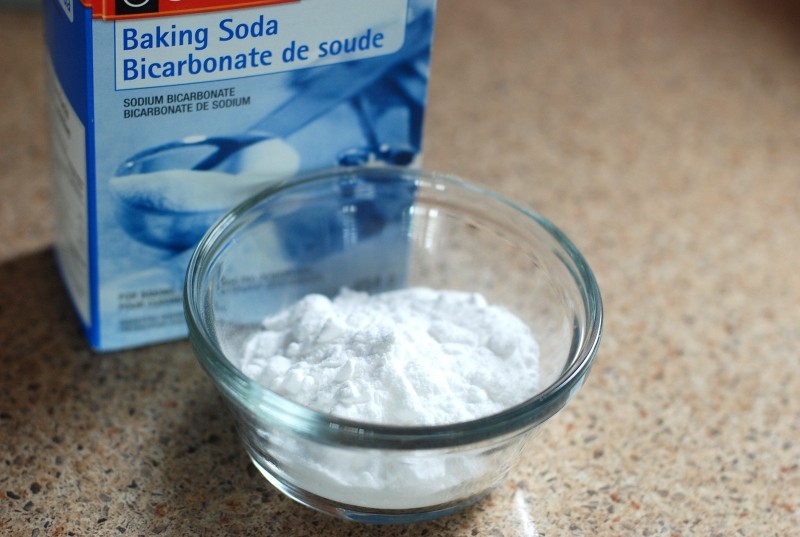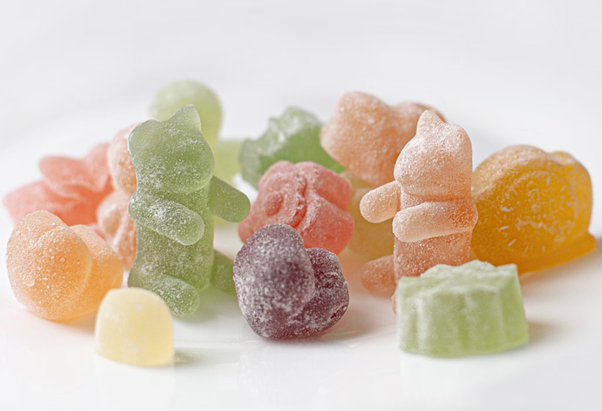How to Use Baking Soda as Organic Fungicide for Your Garden
/Updated 09/28/2022
The use of baking soda as a fungicide is not new and has long been utilized by gardeners to protect their plants. Scientifically known as Sodium Bicarbonate, it has been an effective and safe fungicide for the treatment of various fungal diseases such as powdery mildew. It is also effective at eliminating the effects of fungal diseases on common vegetable plants.
Modes of Action and Benefits
Baking soda has several modes of action. When it is sprayed on plants, it disrupts the ion balance of fungal cells, which causes them to collapse. Also, fungal spores are eliminated because the baking soda leaves alkaline residues on the surface of plants. In most cases, it prevents the formation of spores that cause diseases and can also act as a form of pest control.
Apart from acting as a fungicide, it has several other benefits in the garden. These include but not limited to the following:
Keeping plant leaves and flowers fresh and clean.
Keeping soil PH levels balanced (especially tricky plants like cannabis).
Sweetening the taste of tomatoes.
Repelling insects like ants and caterpillars.
Pros and Cons of Usage
Let’s dive a bit deeper into the pros and cons of using baking soda as a fungicide.
Advantages:
It is organic and eco-friendly.
It is less expensive than commercial fungicides and does the job perfectly.
It prevents mold from growing on plants, including botrytis cinerea, gray mold, which can affect many plant species.
It has been registered with the US Environmental Protection Agency (EPA) for use against some fungi.
Disadvantages:
The active ingredient of baking soda, sodium, can burn roots, leaves and other plant parts in some cases; thus, it can undermine plant health if not used carefully.
Consistent usage of baking soda on plants can cause bicarbonate to accumulate in the soil; thus it has an impact on soil nutrients, which will lead to slower growth of the plant.
Baking soda is also a kind of salt, and its excessive use can hurt plant health in two ways:
Firstly, it blocks plants' tissue cells and as a consequence, plants may become unable to take in the amount of water they require. Inadequate water can lead to foliar diseases and other problems.
Secondly, too much salt can accumulate in the plant and cause, ion toxicity which eventually harms the plant.
However overall, and when used in moderation, the application of fungicides like baking soda causes no major problems and is therefore generally safe to use on plants. As a spray, it can achieve amazing results against fungus and herbivore bugs. Also, it is organic and doesn't cause any kind of harm to the environment; thus, it is a handy solution for plants in your garden if you don't want to sprinkle chemicals like suspended sc out there.
How does it work?
It is as simple as it sounds. Upon ingestion by insects, the active ingredient sodium bicarbonate releases carbon dioxide into their bodies, eventually leading them to death.
How can fungi affect plants?
Fungi survive on the energy from the plants they live or settle in. As the fungi grows, the vitality of the plant diminishes. Plant fungus can quickly damage your plant and eventually cause a total plant collapse.
Fungi come either from the air or from the soil. They travel through the air via spores and settle onto the plant's leaves, or they may enter a plant through the root.
Making Fungicide Out of Baking Soda
Before spraying the solution made at home, you should always perform a patch test on your plants and wait to see how it performs before spraying it in the rest of you garden. This patch test will also help you know if the concentration and dilution of the solution you prepared might lead to the burning of leaves.
A common preparation:
1 gallon of warm water.
3 Tablespoons of Baking Soda Mixing it in the sprayer and then spraying on the plants can be an effective preventive method against any fungal diseases or insects.
A wider range of protection:
1 Gallon Water
1 Tablespoon Baking Soda
1 Tablespoon Oil (Preferably Vegetable Oil)
2 Drops dishwashing liquid
This solution will be even more effective than the first one described above. The oil will increase the solution's ability to kill insects or fungal viruses, while adding dishwashing liquid will help the solution stay where it is sprayed by increasing its viscosity. This solution will also help in controlling the fungal disease “Powdery Mildew”: a common disease that afflicts many types of plants, especially if the growing season has been particularly wet.
A Strong Solution:
1 Gallon Water
2 Tablespoons Baking soda
1 Tablespoon soap (Recommended: Castile Soap)
2 Tablespoons Neem Oil
The addition of neem oil makes an even more effective solution. The neem oil has fungicidal benefits from the Azadirachtin and Nimbin it contains. Therefore, neem oil and baking soda, when mixed together, act as a broad spectrum fungicide and offer an even more effective treatment against fungal diseases like powdery mildew. This solution is recommended when you have already infested plants in your garden. The soap in the ingredient works the same as glue. It helps the solution to stick to the leaves of the plant and can eliminate the fungal spots more effectively.
Using baking soda in combination with other natural methods of repelling pests and weeds can keep your plant safe and protected against any further infestations.
Like this? Please pin!
Warning: Apply at dusk
The baking powder fungicide should be only applied while it's dusk. Applying it on a sunny day or when the sun is out might lead to the burning of your plant's leaves. Also, make sure it won't rain within the next 24 hours after application.
Fungicide made by baking soda works best as a preventative measure, but it can also be effective in eliminating existing fungal diseases. For prevention, it is one of the best working methods to opt for. In most cases, it prevents the formation of spores that cause diseases and is effective at keeping herbivore insects away. Always remember that prevention is better than cure. Therefore, baking soda and other such natural remedies work best before you have problems.
About the author:
Owais Shah is the founder of Town Hustle, a pest control blog which deals with all kinds of insecticide reviews. He has written extensively about controlling pests in your home.








































